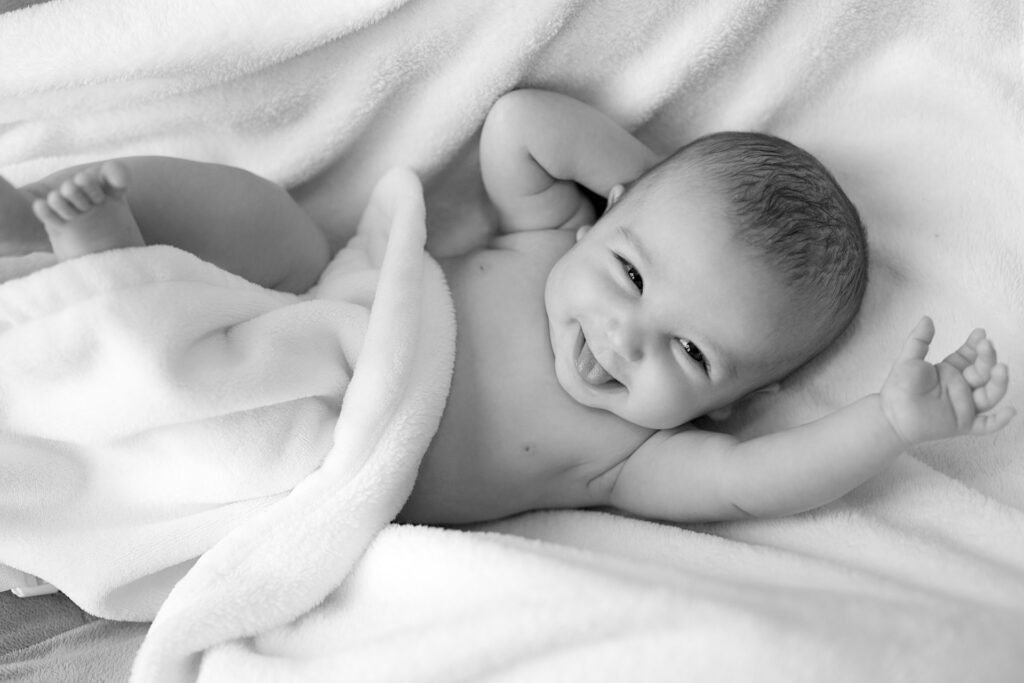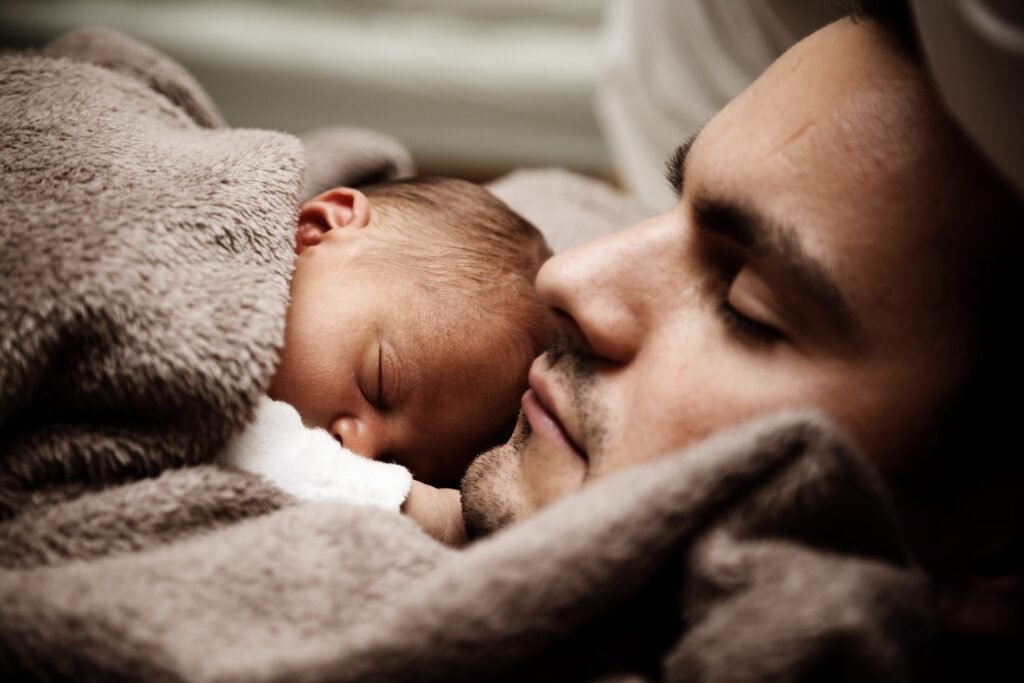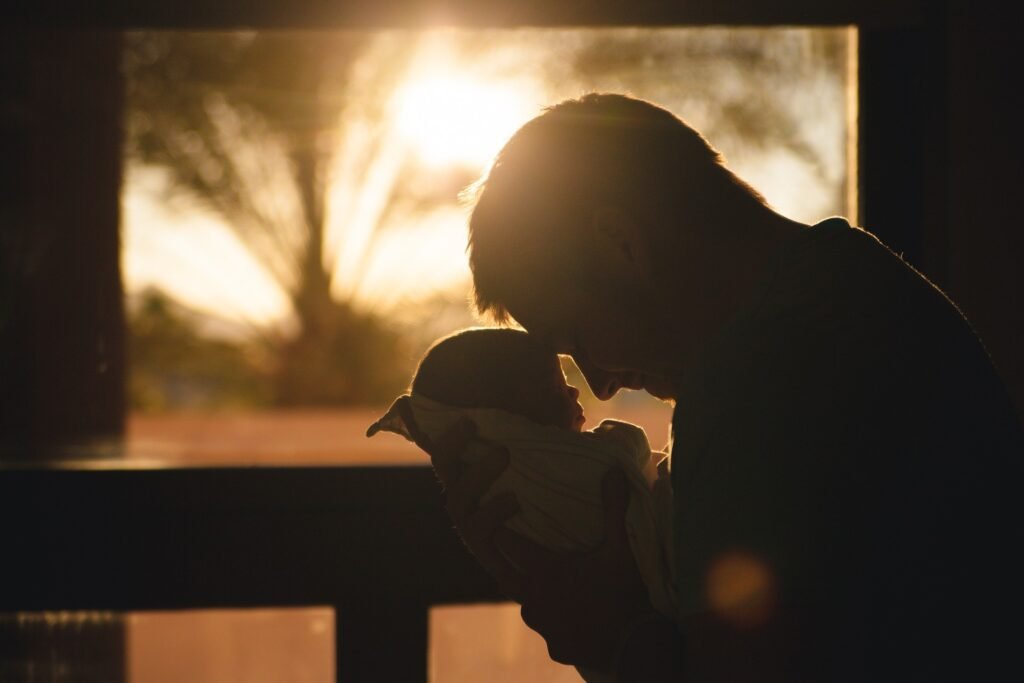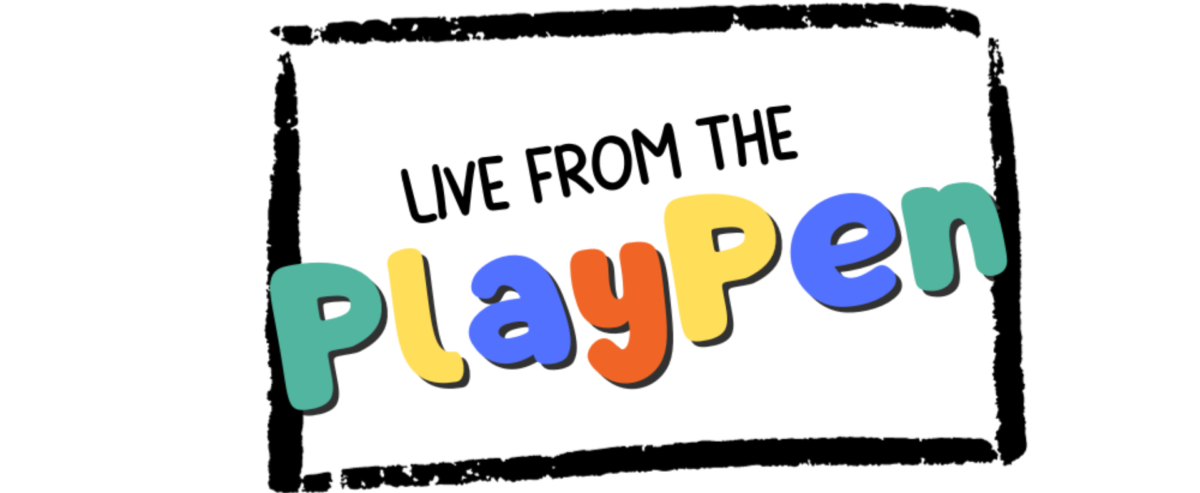When it comes to the term “newborn,” there isn’t a specific age range or definition that everyone agrees on. Some experts consider a baby to be a newborn for the first 28 days of their life, while others extend this period up to 2 or even 3 months. It’s important to keep in mind that each child develops at their own pace, and there is variation in when certain milestones are reached.

Key Takeaways:
- There is no universally agreed-upon age range for when a baby is no longer considered a newborn.
- Some experts define newborns as babies under 28 days old, while others extend this period up to 2 or 3 months.
- Every child develops at their own pace, so there is variation in when certain milestones are reached.
- The term “newborn” may also be used interchangeably with “infant” during this stage.
- It’s important to consult with healthcare providers for individualized guidance on your baby’s development.
Newborn Baby Care
When it comes to caring for your newborn baby, there are several important aspects to consider. From feeding to diapering to providing a safe sleeping environment, every detail plays a significant role in your baby’s well-being. Here are some essential tips to help you navigate through the world of newborn baby care.
Feeding
During the first few weeks, newborn babies need to be fed frequently. Whether you choose to breastfeed or bottle-feed, or both, make sure to feed your baby on demand based on their hunger cues. Burping your baby after each feed is also essential to help prevent discomfort and reduce the chances of reflux. Personally, along with burping, we found the bicycle method to be a lifesaver. Remember, the feeding experience is not only about nourishment but also an opportunity for bonding.
Diapering
Regular diaper changes are crucial to keep your baby clean and comfortable. Newborns tend to soil their diapers frequently, so it’s important to check their diaper every one to two or whenever they show signs of discomfort. Our daughter apparently found new diapers very comforting, and would typically soil one just after changing. Use gentle wipes and diaper rash creams to protect your baby’s delicate skin. Remember to clean the diaper area thoroughly and pat it dry before putting on a fresh diaper. Check out our diaper and wipe comparison for more helpful tips on choosing the best options.
Bathing
It’s important to remember, newborns do not require daily baths as their skin is delicate and sensitive. This is especially true before the umbilical cord nub falls off. While the umbilical cord dries, its important not to get it wet. Instead, sponge bathe your baby a few times a week using warm water, mild baby soap, and a soft towel. Gently cleanse their body, paying special attention to the diaper area, neck folds, and creases. After bathing, pat your baby dry and moisturize their skin with a gentle baby lotion to keep it soft and hydrated.
Sleeping
A safe sleeping environment is essential for newborn babies. Experts recommend having your baby sleep in their parents room for the first 6 months of life. Its also important to place your baby to sleep on their back in a crib or bassinet with a firm mattress. Make sure to remove any loose bedding, pillows, or stuffed animals from the sleeping area to reduce the chances of SIDS. Consider swaddling your baby in a lightweight blanket to provide a sense of security and warmth. Realizing ever baby is different, our daughter hated being swaddled, but would regularly wake herself up during the moro reflex stage. Speaking with a friend who’s daughter had the same reaction, she said perseverance with the swaddles was a game changer, and her daughter soon learned to love it.
To promote healthy sleep, establish a consistent bedtime routine. This can include activities such as dimming the lights, giving your baby a warm bath, reading a bedtime story, and singing a lullaby. Creating a calm and soothing atmosphere before bedtime can help your baby relax and prepare for a restful night’s sleep.
Newborn Baby Essentials
Here are some essential items you’ll need to care for your newborn baby:
- Diapers and wipes
- Clothing (onesies, sleepers, hats, socks)
- Swaddling blankets
- A crib or bassinet
- A car seat for transportation
Remember, every baby is unique, and what works for one may not work for another. Trust your instincts and seek support from healthcare professionals if you have any concerns or questions about newborn baby care. The internet is full of conflicting information when it comes to babies. With ample love, care, and attention, you’ll provide the best start for your precious little one.
Newborn Baby Development
During the first year of life, newborn babies undergo remarkable growth and development. It is an awe-inspiring journey as they achieve various milestones. As a parent, it’s essential to be aware of these significant moments and celebrate them, understanding that each baby develops at their own unique pace.
One of the earliest milestones that melt a parent’s heart is a newborn’s first smile. This heartwarming gesture typically occurs around 6 to 10 weeks of age, as the baby begins to recognize familiar faces and emulates joy in response.
Another exciting milestone is enhanced vision. Initially, newborns have limited visual capabilities, but by around 2 to 3 months, their vision improves significantly. They become more alert, fixating on objects and tracking the movement of people around them.
As their motor skills develop, newborns start reaching for objects. Somewhere between 3 to 5 months, they begin to grasp and hold onto toys or other items within their reach, exploring the world with their tiny hands.
“A baby’s first milestones are precious moments that fill our hearts with joy and wonder. It’s incredible to see them grow, learn, and interact with the world around them.”
Vocal development is another crucial aspect of newborn baby growth. By 6 to 8 months, babies may start recognizing certain words and responding to simple cues like their name. They may even wave “bye-bye” as an adorable form of communication.
As their language skills gradually develop, newborns begin babbling or saying simple words like “mama” or “dada.” This delightful phase gives parents a glimpse of the growing communication abilities of their little ones.
Building Bonds and Trust
During the first year, newborns start to form bonds and develop trust with their caregivers. They recognize familiar faces, particularly those of their parents or primary caregivers, and seek comfort in their presence.
Through playtime, babies enhance their cognitive and social skills, learning about cause and effect while enjoying interactive games with their parents. These moments not only bring joy and laughter but also provide valuable opportunities for bonding.
Crawling or pulling up to stand is an exciting physical milestone achieved around 8 to 10 months. At this stage, babies become more mobile, exploring their surroundings with curiosity and determination.
While some babies may take their first steps around their first birthday, it’s important to remember that all babies develop at their own pace. Some may achieve this milestone earlier or a little later, and both scenarios are perfectly normal and healthy.
To summarize, newborn baby development is an incredible journey filled with smiles, improved vision, reaching for objects, recognizing words, waving “bye-bye,” babbling, bond-building, playing games, and achieving physical milestones like crawling or taking those tentative first steps. Thats not to say it doesn’t come with a fair amount of trials as well, with sleepless nights, inevitable colds, diaper rashes, blowouts, and colic. The key is to embrace and cherish each milestone, knowing that your baby is growing and thriving in their own unique way.
Newborn Baby Sleep
When it comes to newborn baby sleep, it’s important to understand that their sleep patterns are still developing. In the first few weeks of life, newborns typically sleep for around 16 to 17 hours a day. However, their sleep is often fragmented, with frequent awakenings for feeding, diaper changes, and comfort.

Newborn Baby Sleep Patterns
| Age Range | Average Sleep Hours per Day | Typical Wakeful Periods |
|---|---|---|
| First few weeks | 16-17 hours | Frequent awakenings for feeding, diaper changes, and comfort |
| 1-2 months | 14-16 hours | Wakeful periods of 30-60 minutes between naps |
| 2-3 months | 13-15 hours | Wakeful periods of 1-2 hours between naps |
Establishing a bedtime routine can help promote better sleep for newborns. Creating a calm and soothing environment can signal to your baby that it’s time to sleep. This can include dimming the lights, playing gentle music, or engaging in a quiet activity before bed.
It’s completely normal for newborns to wake up frequently during the night. Their small stomachs require regular feedings, and they may need to be changed or comforted. As your baby grows, their sleep patterns gradually become more consolidated, and they may start to sleep for longer stretches at a time.
Here are a few tips to help with newborn baby sleep:
- Swaddle your baby: Wrapping your baby snugly in a swaddle blanket can create a sense of security and help prevent their startle reflex from waking them up.
- Create a consistent sleep environment: Keep your baby’s sleep space quiet, comfortable, and at a temperature that is not too hot or too cold. Experts recommend a temperature between 68 and 72 degrees.
- Follow a predictable bedtime routine: Establish a routine that includes activities such as a warm bath, lullabies, gentle massage, or reading books to signal to your baby that it’s time to wind down and sleep.
- Encourage daytime napping: Help your baby distinguish between day and night by keeping the environment bright and stimulating during the day, and quiet and dark during nighttime sleep.
Remember, every baby is different, and it may take some time for your newborn to establish a consistent sleep pattern. Be patient and responsive to your baby’s needs, and consult with your pediatrician if you have any concerns about their sleep habits.
Conclusion
Each stage of a child’s early years brings its own set of developmental milestones and growth opportunities. It’s important to support and nurture their development by providing a safe and stimulating environment, offering age-appropriate activities, and engaging in positive interactions. Remember, every child is unique, and they will progress through these stages at their own pace.
During the early years of a child’s life, they go through different stages of development. The newborn stage is commonly used to describe babies from birth to around 2 or 3 months of age. After this period, they may be referred to as infants or continue to be called babies until they reach around 1 year old.
At around 1 year, a baby enters the toddler age range, which typically lasts until around 3 years old. This is a time when they learn to walk, run, climb, imitate others, and develop their language skills. Each child develops at their own pace, so it’s important to consult their healthcare provider if there are any concerns about their development.
FAQ
How long is a baby considered a newborn?
There is no specific age range for when a baby is no longer considered a newborn. Some experts use the term newborn for babies under 28 days of age, while others extend this period up to 2 or even 3 months. It varies depending on the expert and the individual development of the baby.
What are the essentials for newborn baby care?
Important essentials for newborn care include diapers, wipes, clothing, swaddling blankets, a crib or bassinet, and a car seat for transportation. These items help provide comfort, safety, and hygiene for the baby.
What are some tips for newborn baby care?
Tips for newborn baby care include frequent feeding, burping after each feed, regular diaper changes, keeping the baby clean and dry, and establishing a bedtime routine to promote healthy sleep. It’s important to create a nurturing and soothing environment for the baby’s well-being.
What are some key milestones in newborn baby development?
Newborn babies experience rapid growth and development in their first year of life. Some key milestones include the baby’s first smile, improved vision, reaching for objects, recognizing certain words, waving “bye-bye,” babbling or saying simple words, developing bonds and trust, playing games, crawling or pulling up to stand, and potentially taking their first steps. Every baby develops at their own pace, so reaching these milestones can vary.
How much do newborn babies sleep?
Newborns sleep for most of the day, typically around 16 to 17 hours in the first few weeks. However, their sleep patterns are not fully developed, and they wake frequently for feedings, diaper changes, and comfort. It’s normal for newborns to wake up frequently during the night, and their sleep patterns gradually become more consolidated as they grow.
When does a baby become a toddler?
A baby transitions into the toddler stage around 1 year of age. The toddler age range typically extends from 1 year to around 3 years old. During this time, toddlers learn to walk, run, climb, feed themselves, imitate others, engage in pretend play, follow simple instructions, and develop their language skills.
What are the different developmental stages from newborn to preschool?
The stage of being a newborn is not precisely defined, but it commonly refers to babies from birth to around 2 or 3 months of age. After this period, a baby may be referred to as an infant or continue to be called a baby until they reach around 1 year old. At around 1 year, a baby is considered a toddler, which typically lasts until around 3 years old. After the toddler stage, a child enters the preschool age range, which lasts until around 5 years old. Each stage has its own set of developmental milestones and growth opportunities.
Source Links
- https://www.verywellfamily.com/difference-between-baby-newborn-infant-toddler-293848
- https://www.pampers.com/en-us/baby/development/article/newborn-baby-toddler-age
- https://www.who.int/westernpacific/health-topics/newborn-health

